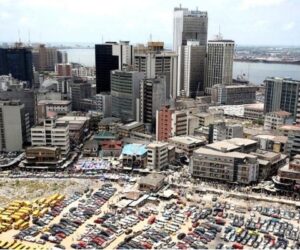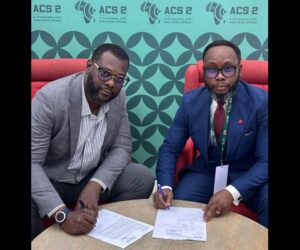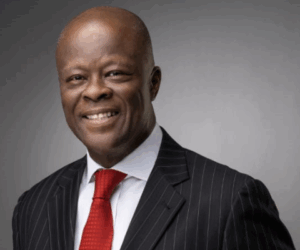Lecture on FUTURISM in Boston, USA, 1970.
As I was finishing my MBA course in Boston, USA, in 1970, futurism, or the attempt to predict future trends, was gaining popularity. I hopped on the wagon, and thanked God for that. That study has saved me from falling into traps set by public officials like Kyari and Ojulari, who make unrealistic predictions of our country regarding crude production and export. If Ojulari had bothered to find out the truth, he would have discovered that his predecessors in office, not just Kyari, since 2013 have been promising the FG increased crude production to 2 mbpd, and they have failed every single day in 12 years.
Most recently, Nigeria in January, February and March of 2025 averaged only about 1.5 mbpd, and April will not be better. With such huge negative variances in actual production against budget, what is the basis for optimism about reaching 2 mbpd, not to mention 3 mbpd?
Furthermore, the new GMD-NNPCL, like the rest, speaks as if he is ignorant of the existence of the Organisation of Petroleum Exporting Countries, OPEC, which regulates members’ production. Nigeria’s quota is currently 1.5 mbpd and is unlikely to be increased to 2 mbpd – well into the foreseeable future – for reasons too complex to be discussed now. Nigeria producing 2 mbpd will not only trigger a response from other producers – OPEC and non-OPEC – but the country will be forced to utilise most of the crude internally. Shocking as it might be to most of us, our internal consumption of crude is not strong enough to support the production of 2 mbpd.
Obviously, the 3mbpd promised by Ojulari is wishful thinking at its worst, and it is destined to bring the same disastrous consequences as Nigeria has experienced since 2013.
“Wishful thinking is not idealism. It is self-indulgence at best and self-exaltation at worst. In either case, it is at the expense of others.” Ceratosaurus.
All the GMD-NNPCL have deceived us long enough. For too long, the FG primarily, and the Nigerian people ultimately, have been victims of unfulfilled promises made by the Ministry of Petroleum, under Presidents Jonathan, Buhari and now Tinubu – as well as the GMD-NNPCL.
“Obviously, the 3mbpd promised by Ojulari is wishful thinking at its worst, and it is destined to bring the same disastrous consequences as Nigeria has experienced since 2013.”
The presidents have been fed outright lies about Nigeria’s sustainable capacity to produce and export 2 mbpd of crude oil; they swallowed the lies and based budgets on them. Every budget since 2013 has failed, and the 2025 budget is already in the trash can of history with eight months to go.
“The Punch” newspaper front page, June 12, 2025”
Headline: “OPS PUSHES FOR REFINERY SELL-OFF AFTER $2.4BN WOBBLY REPAIRS”
“Following the seemingly botched repairs of the Port Harcourt and Warri refineries, after both plants gulped about $2.4bn and returned to dormancy within six months of operation, the organised private sector and oil marketers have called for the immediate privatisation of the facilities.
However, the regulatory agency of the midstream and downstream arms of the oil sector said the privatisation of these plants would only happen if approved by the Federal Executive Council, as officials of the Nigerian National Petroleum Company Limited and the Federal Ministry of Petroleum Resources stayed mute on the latest call by the OPS.
The PUNCH reports that calls for the privatisation of the government-owned refineries, under the management of NNPCL, intensified following the shutdown of the 60,000-barrel-per-day old Port Harcourt Refining Company, six months after it was declared operational.
The PUNCH recalls that the Warri Refining and Petrochemical Company was shut down in January, barely a month after it was declared operational. It was reported that the Federal Government had spent up to $2.4bn on the turnaround maintenance of the facilities.
In an interview with The PUNCH, the Executive Secretary and Chief Executive Officer of MEMAN, Clement Isong, said MEMAN had consistently requested that the facilities be handed over to professional refinery managers.
Isong said Nigeria needed the refinery to avoid a single source of fuel distribution or supply, saying there should be healthy competition with the Dangote Petroleum Refinery.
“I have been consistent. We need those refineries. We need them to work. And we have been consistent in proposing that the refineries be handed over to professional refinery managers, whether with or without a stake, in order to ensure that there is some competition with Dangote. We think that competition is always important in the sector,” Isong said.
Asked if he meant the NNPC cannot run the refineries effectively, Isong reacted that the refineries might be suffering from political interference and the perception of the NNPC’s social role. These, he said, had prevented the NNPC from taking hard decisions like reducing its staff strength, as a private business would do.
“History has shown that the challenge may be a result of the political interference in the past and the perception of its social role. Those are the two things that have prevented NNPC from taking hard decisions. For instance, a private enterprise will have optimal staff strength, whereas NNPC will struggle to reduce its staff strength because there could be a crisis as it struggles to manage its relationship with the union,” he maintained.









